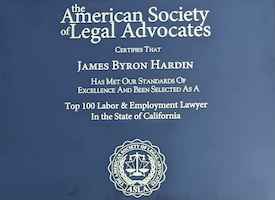CA Employees Bringing A Wave Of Employee Pay Lawsuits
In California, there has been a recent wave of cases brought by employee plaintiffs who claim their employers have underpaid wages and cheated them out of benefits. California state laws, in addition to federal laws, play a role in the legal standards an employer must follow when it comes to overtime and related entitlements.
Read on to learn about three cases that highlight the importance of employers’ maintaining an awareness of the nuances California and federal wage and hour laws, particularly when it comes to the issue of employee overtime pay.
The class action overtime lawsuit Sarah Chookey v. Sears Roebuck & Co. resulted in a $3.2 million settlement for the employees. The case, which affected thousands of current and former Sears employees, alleged that Sears miscalculated employees’ overtime pay over a several year time period. Federal law requires employees to be paid overtime at a rate of 1.5 times the regular pay rate of an employee. The calculation is relatively uncomplicated when an employee is paid on a simple, hourly basis. However, the correct overtime calculation can become more complicated when, as in Sarah Chookey, employees are paid commission on top of hourly wages. When commissions are part of an employee’s regular pay, they must be included in the overtime calculation.
Proper classification of employees is another issue that can potentially confuse Orange County employers when determining overtime pay. According to disgruntled employees, the employers in the recently filed case Ramses Gutierrez et al v. Carter Brothers Security Services LLC et al. allegedly misclassified their employees to avoid paying them California overtime, minimum wage, and other expenses. The case hinges on the issue of whether the employees were correctly classified as “independent contractors” for the purposes of applicable employment laws. Independent contractors are typically entitled to fewer protections and benefits than regular employees. The plaintiffs are currently seeking classification as a class action.
A similar employment lawsuit, Amaro & Urzua, et al v. Gerawan Farming Inc. et al, was recently filed as a class action against a California farming company. The lawsuit was filed on behalf of thousands of farm and field workers who claim their take-home wage fell below California’s minimum wage because they were paid by volume of work, rather than hourly. The plaintiffs have alleged that the company failed to pay overtime in accordance with California’s state overtime laws and failed to pay minimum wage as required by California state law. The plaintiffs have also alleged that Gerawan failed to give them the proper number and duration of rest breaks required by state law.
This recent increase in overtime suits illustrates the need for Orange County employers to comply with the applicable California and federal laws when it comes to calculating overtime payments and related entitlements and benefits for employees. To discuss in further detail, contact an experienced employment lawyer today.
The Orange County employment lawyers at Hardin & Associates have vast experience handling class action lawsuits. Contact them today.





















